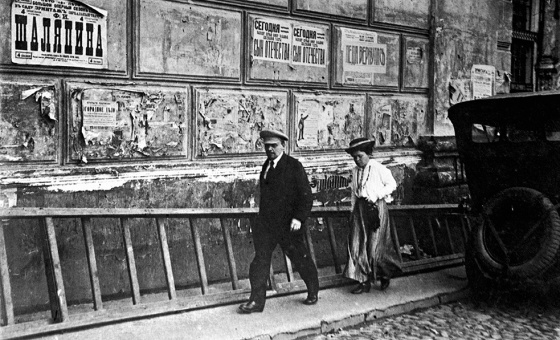This is the last article you can read this month
You can read more article this month
You can read more articles this month
Sorry your limit is up for this month
Reset on:
Please help support the Morning Star by subscribing here
Mao’s Little Red Book:
A Global History
Edited by Alexander C Cook
(Cambridge, £50)
Quotations from Chairman Mao Zedong, taken from the pocket-sized, vinyl-bound “little red book” that swept the world in the late 1960s, must represent one of the most extraordinary phenomena in the history of propaganda.
This compilation of 15 essays, each by a different author, on the impact of the book worldwide marks a fascinating attempt to understand why it reached such a wide audience — it is usually estimated to be the most widely read text in history after the Bible — and to what extent it proved a useful tool for those who wanted to change the world, from Chinese red guards to the Black Panthers in the US and from Tanzanian peasants to French university professors.
Initially compiled as a field guide for People’s Liberation Army soldiers, the book was what its editor Alexander Cook aptly terms a “weapon of mass instruction,” intended to spread the essentials of Mao’s thought as widely as possible in a still semi-literate society.
With the eruption of the cultural revolution in China in 1966 this role became even more militant. Its chief promoter Lin Biao termed it a “spiritual atom bomb” with which the Chinese people would take on and overcome their enemies.
The essays place great emphasis on the form of the book. It is itself derived from Chinese tradition, with the presentation of extracts from Mao’s writings over a 30-year period as short maxims to be memorised echoing the Analects Of Confucius, a format approvingly noted by Mao himself.
But, as he also recognised, this presentation allowed individual phrases and sentences to be taken out of their original context and used for purposes which might be quite at variance with Maoist thinking more generally.
The battles between rival red guard factions, each using Mao quotes to denounce the other, are a case in point. All the iconic slogans of the cultural revolution — “the US atom bomb is a paper tiger,” “political power grows from the barrel of a gun,” “to rebel is justified” — made perfect sense in the original sources. But they became indiscriminate justifications for almost anything once intoned as universal truths.
The book’s impact in other countries became progressively stronger and Sreemati Chakrabati, commenting on its role among the Indian Naxalites notes that “in China, the book was a pocket reference to a much larger and well-known corpus of works. In India it became an inadequate substitute for systematic ideological indoctrination.”
The same essay points out that Naxalite murders of police constables, primary school teachers and petty shopkeepers as part of their “class war” in no way reflected anything Mao had ever recommended.
In Peru, during the era of the Shining Path movement, the “Maoists” banned traditional communal organisations among the native American peasantry and “in so doing completely disregarded a core principle of Mao’s tactics to win and retain peasant support.”
Maoism could take odd forms and there are laugh-out-loud moments in the book. A real conversation in a 1960s butcher shop in China illustrates the absurdity of quoting Mao in every sentence. “Serve the people! Two pounds of pork, please,” says the customer. “A revolution is not a dinner party! Here you are,” comes the reply.
And the Soviets found an article in the Chinese press about a hairdresser who had used the little red book to “resolve the contradiction between cutting hair well and cutting hair fast” so self-evidently preposterous that Liternaturnaya Gazeta reprinted the whole thing without comment.
The overall picture points to a book whose dissemination did more to confuse people about Mao’s thinking than to educate them. Indeed, Mao surprised visiting Albanian communists by telling them it “could not possibly be of any use to the Albanians” and advising them to read Marx instead.
The impact of Maoism on movements in the west and the Third World was mostly negative and it seems clear that boiling down Mao’s thought to the pithy sentiments of the little red book played its part in this. Nonetheless, its mass dissemination was a real attempt to empower ordinary people with ideology, if one that went wrong.
Former red guard Xiao Ming is quoted in the last chapter recalling arguments with her fellows over the meaning of phrases in the book. It was a “class in democracy,” she says, “we educated ourselves.”
She rejects Western notions of ballot-box democracy, arguing for “people’s self-organisation” to develop a truer form of people’s power. The chaotic violence of the cultural revolution is hardly an attractive example of that.
But if the little red book helped impart in China’s youth the need to “dare to struggle and dare to win,” perhaps its legacy is not wholly negative after all.
 Ben Chacko
Ben Chacko








